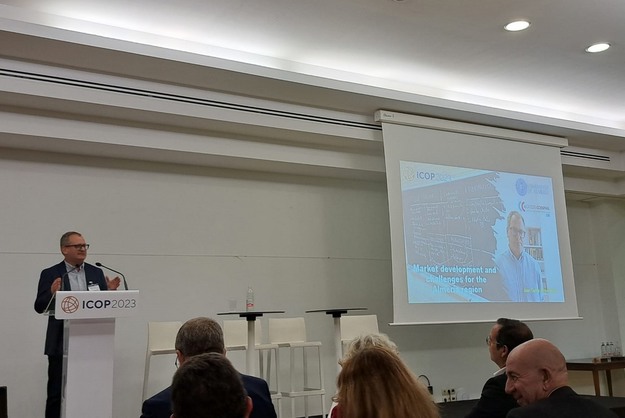"Since a few years ago, the indirect environment has been affecting cooperatives and companies in Almeria much more than our immediate environment," said Juan Carlos Perez Mesa, professor at the University of Almeria, in a presentation held recently in Almeria within the framework of the International Congress of Producer Organizations. Factors such as "the regulatory tsunami of the EU, the war in Ukraine and the Middle East, interruptions in the supply chain or international migratory flows" are resulted in an increase in costs since 2021. "If we look at an overall average, we see that there has been a 34.4% increase," he said. "And while it is true that, as of March, that increase began to moderate, inflation is accumulating, and we are going to continue struggling with it in our cost structure."

He stressed that "internalizing externalities" will be necessary going forward, but also sustainability is linked to innovation. "In fact, sustainability has ceased to be a cross-cutting aspect in the supply chain to become the very heart of the chain."
Human capital, the main resource a company has, according to the Theory of Resources and Capabilities, the attraction and retention of talent, or new technologies, including robotization, which the Netherlands intends to start implementing by 2024, will play a key role in the future in an environment in which competition is on the rise.
"When it comes to tomatoes, Morocco really stands out, as its labor costs differ by 1 to 7 compared to Almeria's. "At the end of the value chain, this difference is reduced to 40% at the destination, and we have to fight for this margin to be reduced as much as possible. We cannot forget that quality is important, but in consumer surveys, price is a big factor behind each purchase," he said.
"Morocco is our great competitor, and in just a few years it has drastically increased its production, which has already exceeded those of Spain and the Netherlands. As for tomatoes, the country already has more than 10,000 hectares and, at this point, we will have to decide if we want an offshoring model in Morocco or if we want the EU to remain self-sufficient."
Juan Antonio González Real, president of Coexphal, together with Luis Miguel Fernández, also from Coexphal; Juan Carlos Pérez Mesa, from the University of Almería; José Manuel Fernández, from Vicasol, and Juan Pérez Zamarrón, from Coexphal.
Another challenge for Almeria and its production, and not just the tomato production, is protecting its reputation in Europe. "We have conducted an academic study in which we have analyzed the news published in generalist media in several European countries to find out the media's opinion about Almeria's production system, and the following words summarize what is talked about in all these news," he said, showing a slide containing words such as "complaints," "plastics," "workers' conditions" or "illegal." "Of course, the media can no longer criticize the sector regarding the use of pesticides, but the concept of social dumping is now present," he said.
"We do not deny that there may be a minority who break the law, but such situations are absolutely under control today. In fact, let me remind you that Almeria is currently the Spanish province with the highest registered immigrant population, 21%, ahead of large cities such as Madrid or Barcelona. Twenty-seven percent of the entire labor force in Almeria comes from outside Spain, and that figure rises to 67% in the agricultural sector."
"Lastly, I would like everyone to remember that vegetables are the most important agricultural item of all agricultural productions in the European Union, ahead of fruit or the dairy sector, but the sector receives less than 1% in aid."
"The sector wants to retain its position in the market, so we hope that regulations won't favor non-EU competition," he said.
